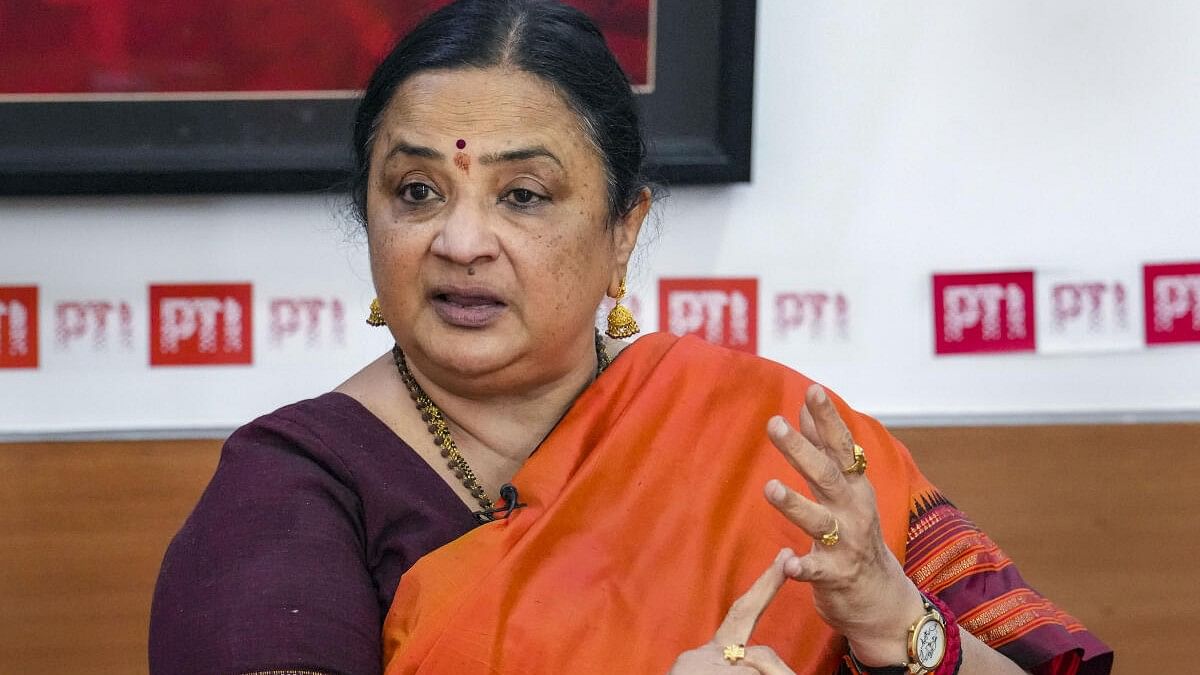
JNU vice-chancellor Santishree Dhulipudi Pandit.
Credit: PTI Photo
New Delhi: Jawaharlal Nehru University Vice-Chancellor Santishree D Pandit on Friday said that the decision to hold weekend classes to cover up the syllabus due to the delay in starting the new academic session amid the delayed CUET-UG results will be taken by the deans of the respective schools and the faculty if there is a need felt.
The varsity administration will not interfere in the matter and will leave it at the discretion of the faculty and the head of the departments to decide what is necessary, she added.
In an Interview with PTI, Pandit clarified that the report of JNU mulling to hold extra classes on weekends will be completely the call of the faculty to figure out ways that are best suitable for them.
PTI had on July 15 reported a senior JNU official saying that delay in the declaration of CUET-UG results will impact the university's plan to release an unified academic calendar for all the batches of students.
The university will have to rely on extra classes on Saturdays and may have to shorten its winter break to cover up for lost time to complete the syllabus, the official had said.
"Whether or not JNU will hold any such thing is a decision which will be completely based on what the faculty and the deans of the schools decide. It is they who teach the students and better know how to cover up the delay. We will have no say in this. They can decide what is suitable for them and students," she said.
Pandit also clarified that the varsity does not plan to opt out of the centrally held entrance exam systems --CUET-UG or UGC NET-- for their undergraduate and PhD admissions at present.
"We have invited suggestions from all the stakeholders. It has been a long demand at the JNU to re-instate our old entrance exam system. So far we have not come to any decision but we will look into ensuring timely conducting of the admissions," she said.
The CUET UG results are delayed by over two weeks due to a re-test of over 1,000 students held on Friday.
The NTA announced the re-test following complaints from candidates, including issues of time loss due to the distribution of the wrong question paper.